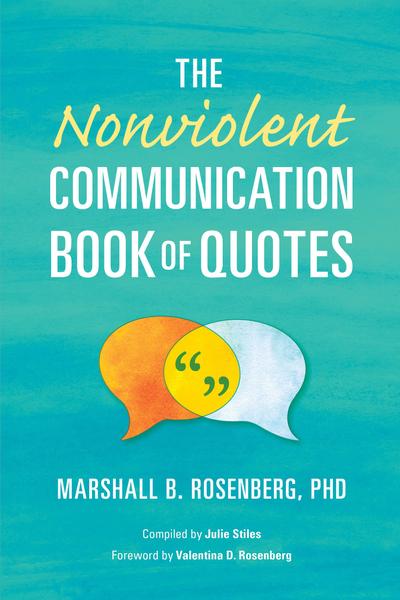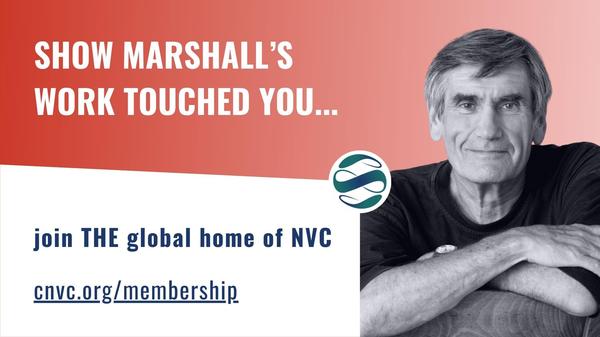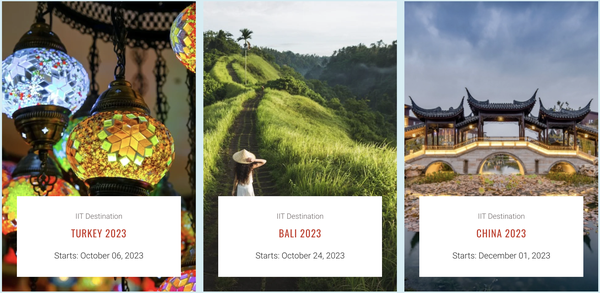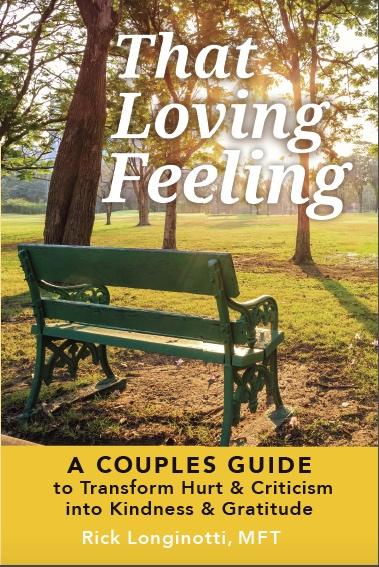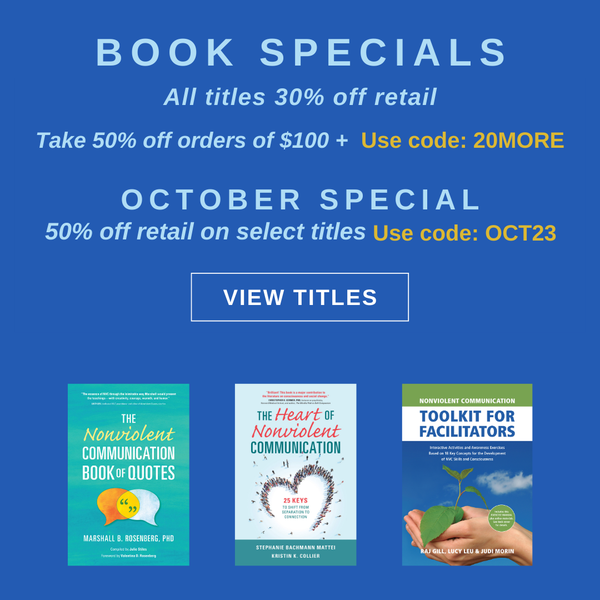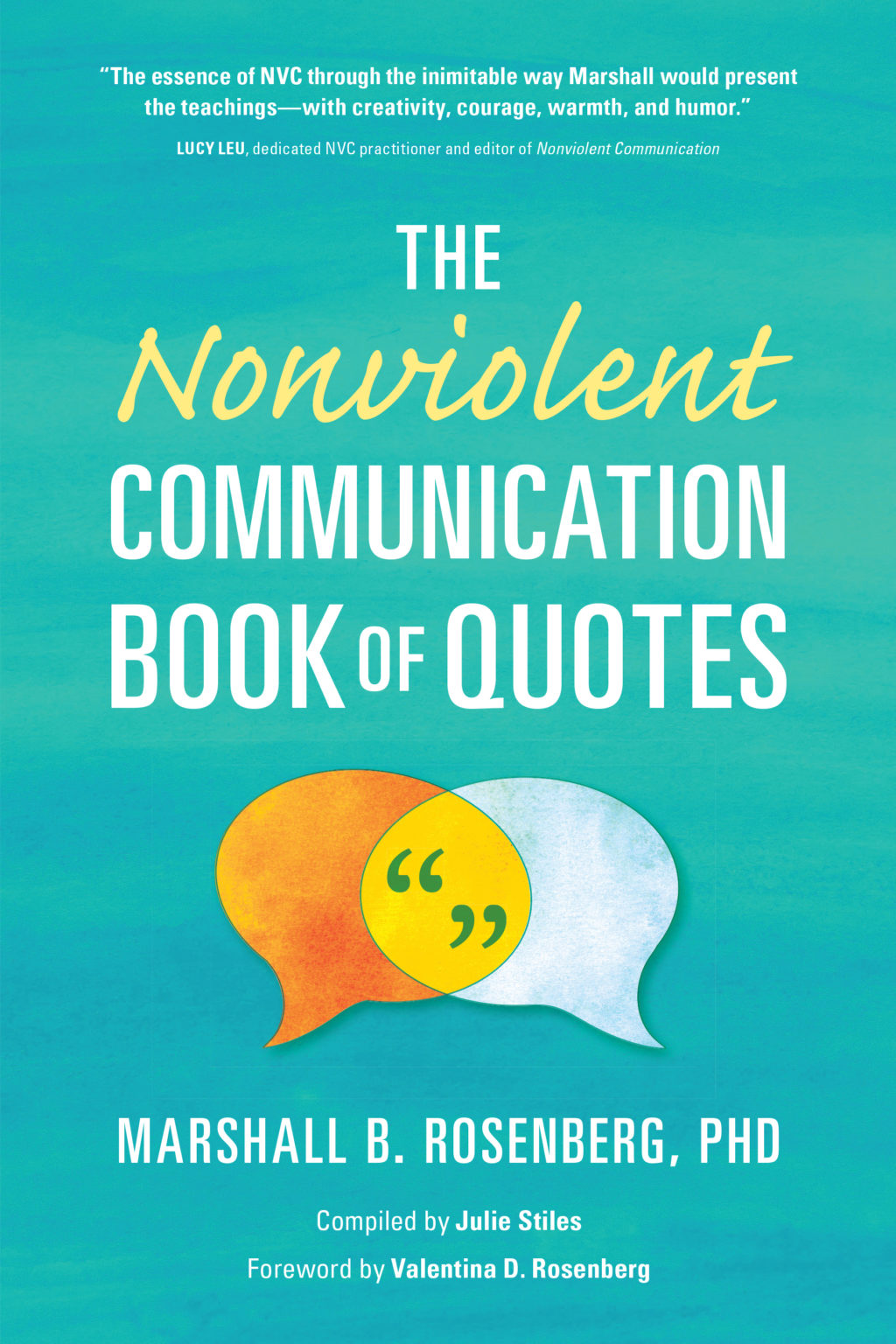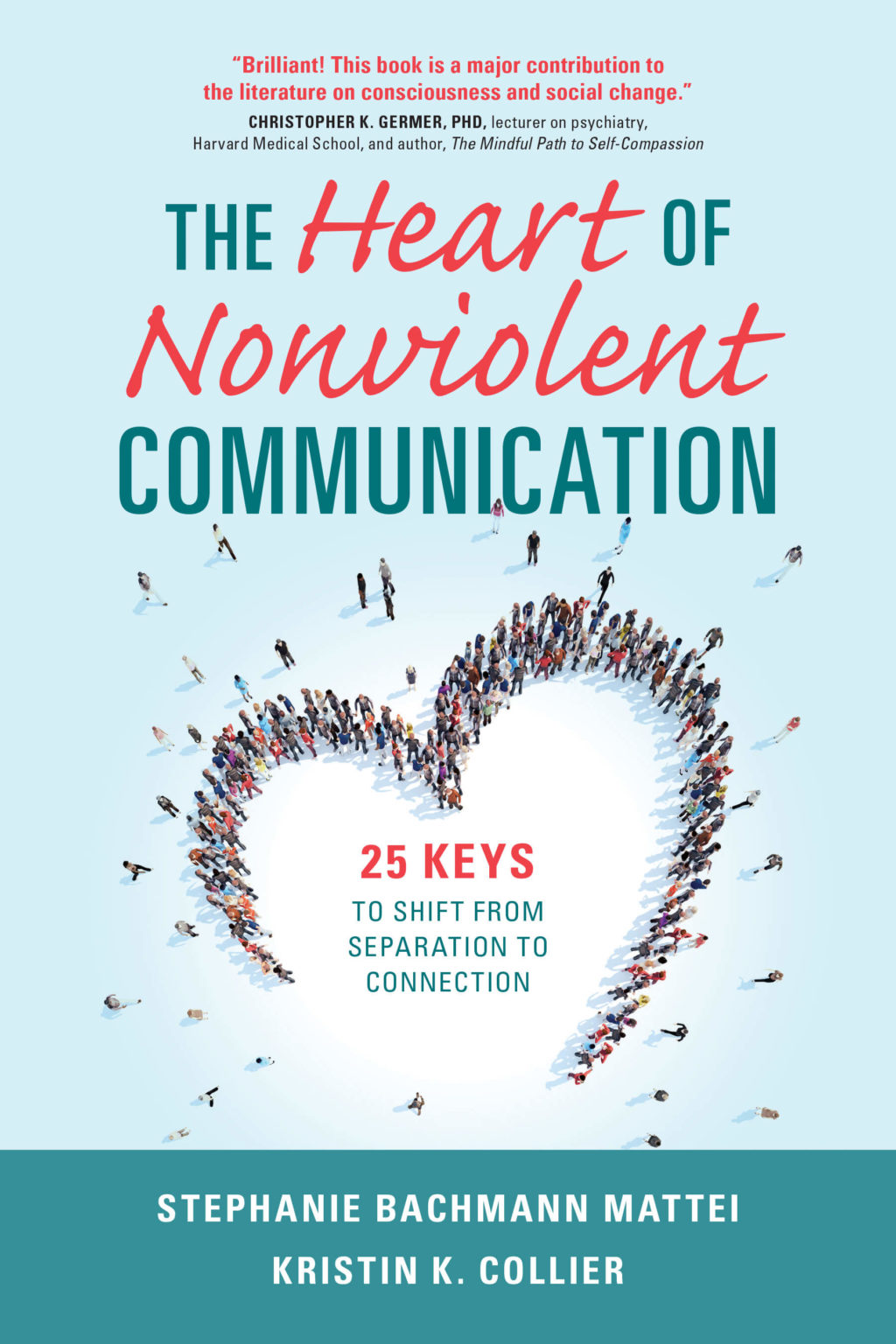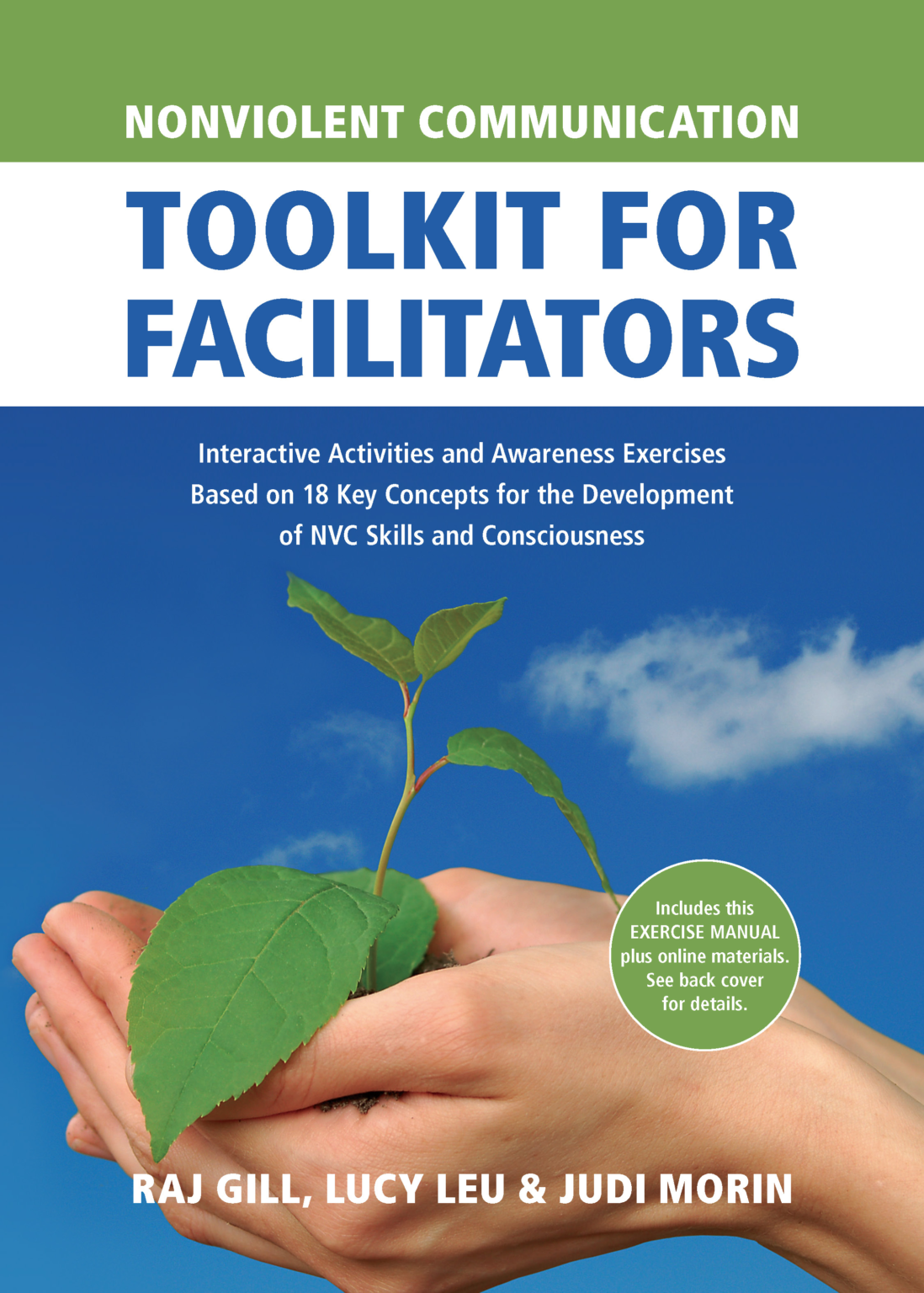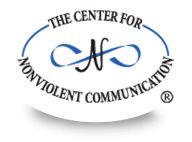|
|
|
|
NVC Monthly NewsletterOctober 2023 |
We hope you find value in the resources we are providing today! We invite you to share with friends, family, colleagues, and others, if you believe they might also find value in this. Our most recently featured topic is
written on INTERACTIONS WITH AUTHORITY. Our website covers over 45 different topics from an NVC perspective-all written by a senior certified trainer on behalf of PuddleDancer Press. Please read some to learn more. If you are new to Nonviolent Communication please visit our page on the basics of Nonviolent Communication. Please stay safe and healthy! Thank you :) PuddleDancer Press
What You'll Find in This Month's Newsletter:Events - New Book! - The Nonviolent Communication Book of Quotes
- join THE global home of NVC - CNVC
Membership
- Turkey IIT 2023 - Begins October 6th
- Bali IIT 2023 - Begins October 24th
- China IIT 2023 - Begins December 1st
Articles - Nonviolent Communication and Interactions with Authority
- The Concept of Non-Violent Communication is Driving Social Change Through Empathy - Saranya Chakrapani
Book Feature - That Loving Feeling: A
Couples Guide to Transform Hurt & Criticism into Kindness & Gratitude
Book Specials 50% OFF both full Retail and eBooks Price - The Nonviolent Communication
Book of Quotes
- The Heart of Nonviolent Communication
- The Nonviolent Communication Toolkit
Distance Learning Opportunities - NVC
Academy
- The Center for Nonviolent Communication Trainings
Book Excerpts - The Nonviolent Communication Book of Quotes - Part 1
- The Heart of Nonviolent Communication - Chapter 1
- The Nonviolent Communication Toolkit - Chapter 1
Handouts - Downloads
- Recommended
Links
Peaceful Daily Reflection/Meditation - Taking Action to Change Our Experience
Poem NVC in the News - Empowering new managers: Ten coaching tools you’ll want to have in your back pocket | LondonlovesBusiness
- A glance into the genius Microsoft brain with these 8 Satya Nadella books recommendations | Lifestyle
Asia
- The Perceived Effects of the Gentle Parenting Phenomenon | Indonesia Expat
- When a Feeling Is Not Really a Feeling | Psychology Today
Resources - Becoming a CNVC certified trainer
- Guidelines for Sharing NVC for Individuals who are not Certified
Trainers
NVC Resources - NVC TIP SERIES (Free daily and weekly tips)
- FREE RESOURCES
- NVC FACEBOOK GROUPS
- NEW ** NVC LINKEDIN GROUPS
** NEW
|
New Title! - The Nonviolent Communication Book of Quotes
Now 50% off retail with code OCT23 A comprehensive collection, The Nonviolent Communication Book of Quotes by NVC founder Marshall B. Rosenberg draws not only from other books and interviews, but also from the internet and previously unpublished workshops. It illuminates his revolutionary four-part Nonviolent Communication (NVC) process and shows the myriad ways NVC makes life more wonderful through the joy of compassionate giving. This essential compilation invites us to transform our lives, our work,
our world.
What People are Saying “This book is an absolute gem! “Marshall’s voice is loud and clear. Organized by topics, this book offers us a way into the heart of Marshall’s teachings. “It dispels any doubt about NVC being a way of life, more than a system of communication. And it clarifies that NVC is a spirituality that inclines toward social change for the benefit of all. “Brilliant.” —STEPHANIE BACHMANN MATTEI, coauthor of The Heart of Nonviolent Communication, certified trainer and assessor with CNVC, and certified teacher in Mindfulness-Based Stress Reduction
join THE global home of NVC - CNVC Membership
It’s now possible to contribute to and collaborate with the Center for Nonviolent Communication (CNVC) through Supporting Membership. As a supporting member you are part of a
growing movement of like-minded people impacted by NVC. Supporting Membership benefits: - official alignment with the global home of NVC
- discounts on immersive
trainings
- provide input to shape CNVC's future
- invitation to a free online annual gathering
- members-only video library
Together, we’re speaking the language of the heart. Together, we’re creating the world our intuition knows is possible. Together,
we’re at home in the global home of NVC.
Upcoming International Intensive Trainings
|
"IT MAY BE most difficult to empathize with those we are closest to." Marshall
Rosenberg |
Nonviolent Communication and Interactions with Authority |
How do we use Nonviolent Communication (NVC) to interact effectively with authority figures or people in positions of power? What is NVC? Let’s
start by defining Nonviolent Communication as a way of harnessing thought, language, communication, and the use of power in order to create a high quality of connection with others. When the connection between people is positive and high quality, misunderstandings and conflicts are prevented or resolved more readily, trust is built or reinforced, and mutually satisfying outcomes become consistently available. Structural Power One thing to consider is that there can be different kinds of authority figures who can hold different kinds of power. If you are an aspiring artist, there might be people you
look up to and respect because they have honed their craft or perfected their art. This is one type of authority, who you might respect for their knowledge and experience, but they have no “structural power” over you. Read More
The Concept of Non-Violent Communication is Driving Social Change Through Empathy by Saranya Chakrapani
Ten-years-ago, Manasi Saxena walked into a non-violent communication (NVC) practice group meeting in Hauz Khas, Delhi, where she was asked a question that convinced her to make NVC her life’s work -“What are your needs?” This simple
inquiry of a fundamental right and its honest expression is at the heart of the communication language and practice developed by American psychologist, mediator, and teacher, Marshall Rosenberg. Rosenberg conceptualised NVC from the principles of person-centered therapy, as a communication language built on honestly expressing your deepest
feelings and needs to someone, and being able to empathetically listen to theirs. As a conflict resolution method, NVC doesn’t always work with the goal to end disagreements, but rather build empathy, an equal sense of belonging and ‘being heard’ for one’s needs and feelings that practitioners believe are universal; such as sustenance,
connection, community, freedom, autonomy, security, etc. |
"BLAMING IS EASY. People are used to hearing blame; sometimes they agree with it and hate themselves—which doesn’t stop them from behaving the same way—and sometimes they hate us for calling them racists or whatever—which also doesn’t stop their behavior." Marshall Rosenberg |
That Loving Feeling: A Couples Guide to Transform Hurt & Criticism into Kindness & Gratitude by Rick Longinotti, MFT
|
That Loving Feeling: A Couples Guide to Transform Hurt & Criticism into Kindness & Gratitude is an engaging fictional account of three couples whose relationships keep getting caught in traps of hurt and defensiveness. Through attending an NVC workshop, they learn to break loose from those habits, starting with a deeper appreciation of themselves. Their kindness towards
themselves spills out towards their partner and they experience a spirit of mutual generosity. NVC Trainer Jean Morrison says, "The story is a captivating way for anyone to learn or deepen their learning of NVC . To me this book is a real gift to our NVC world.” NVC Trainer Kara Bowman, MFT, says, “I’m very excited to recommend this book to clients.”
|
Don't Quit... Attitude is everything. Bend, don’t break. Challenge your perspective. Dare to stay positive. Effort creates opportunities. Follow your intuition. Get back up and try again. Hang on to your dreams. It’s darkest just before the
dawn. Just dig a little deeper. Know when to ask for help. Learn from your mistakes. Make your own luck. No rain, no rainbow. Obstacles can be stepping stones. Problems may hold answers. Question what’s not working. Regroup when you need to. Stay the course. Today is a new beginning. Understand the consequences. Value taking calculated risks. Work smarter, not just harder. Xhaust all possibilities. You will never know unless you try. Zzzzzs get a good night’s sleep. © Meiji Stewart |
"WHEN IT COMES to giving advice, never do so unless you’ve first received a request in writing, signed by a lawyer." Marshall Rosenberg |
Nonviolent Communication Free Handouts and Links
Downloads:
Recommended Links:
|
"WHEN SOMEBODY’S TELLING you what’s wrong with you, the truth is [that] they have a need that isn’t getting met. Hear that they’re in pain. Don’t hear the analysis." Marshall Rosenberg |
The Nonviolent Communication Book of Quotes - Part 1
|
The Heart of Nonviolent Communication - Chapter 1
|
The Nonviolent Communication Toolkit for Facilitators - Chapter 1
|
"I WOULDN’T EXPECT someone who’s been injured to hear my side until they felt that I had fully understood the depth of their pain." Marshall Rosenberg |
CNVC is committed to the vision of a critical mass of the world's population using Nonviolent Communication (NVC) to resolve differences peacefully. A strong community of qualified trainers will play an important role in the realization of this goal. |
"THE KEY TO fostering connection in the face of a no is always yes to something else and, as such, it is the beginning, not the end, of a conversation. Hear the yes behind the no." Marshall Rosenberg |
The NVC Academy offers hundreds of affordable online personal growth courses and resources to learn Nonviolent Communication from home.
|
The Center for Nonviolent Communication
The Center for Nonviolent Communication (CNVC) is a global organization that supports the learning and sharing of Nonviolent Communication (NVC), and helps people peacefully and effectively resolve conflicts in personal, organizational, and political settings.
|
"OUR MOST UGLY, aggravating jackal is our best guru. See, we stand more to benefit, more to learn from those people whose beauty we cannot see than anybody else. They’re our best teachers." Marshall Rosenberg |
Stay Connected to the Values of Compassion With the Free 365 Daily Peaceful Living Meditations.
The tragedy is not so much what men suffer, but rather what they miss. —Thomas
Carlyle
Taking Action to Change Our Experience Sometimes when we are unhappy with an aspect of our life, it seems too painful to change; thus, our continued unhappiness is the result of our inaction rather than our action. When I was in high school, I was terribly shy and uncomfortable with
people, so I kept my distance. This met my need for protection and ease. I developed a few close friends, but I didn’t mingle or talk with people easily. When I was in my thirties, I began to realize how the decision not to deal with my shyness in high school had kept me isolated from people. My loneliness and discomfort with people went on for more than ten years after high school because I hadn’t taken the risk then to overcome them. Later, my needs for intimacy, fun, and connection became
more pressing than my needs for protection and ease, so I began to create strategies that would help me learn how to connect with people and protect myself. Reflect on an area of your life that stimulates pain in you. Is the pain caused by something that is happening, or by your own inaction? Without judging yourself or your decisions,
consider whether you are now in a better position to take action to change your experience. Ponder one area of your life that you are unhappy with today. Consider whether the cause is your action or inaction. |
- NVC TIP SERIES (Free daily and weekly tips)
- FREE RESOURCES
- NVC FACEBOOK PAGES
We hope you find value in our monthly newsletters. We would love to receive ANY feedback or suggestions you may want to share. Please let others know about our newsletter to help spread nonviolent communication, love, hope, humor and compassion, if you are willing :)
We want a more compassionate, equitable, peaceful, safe and healthy world.
Please be safe!
Warmly,
PuddleDancer Press
|
|
|
|
|
|
|
|
|
|


